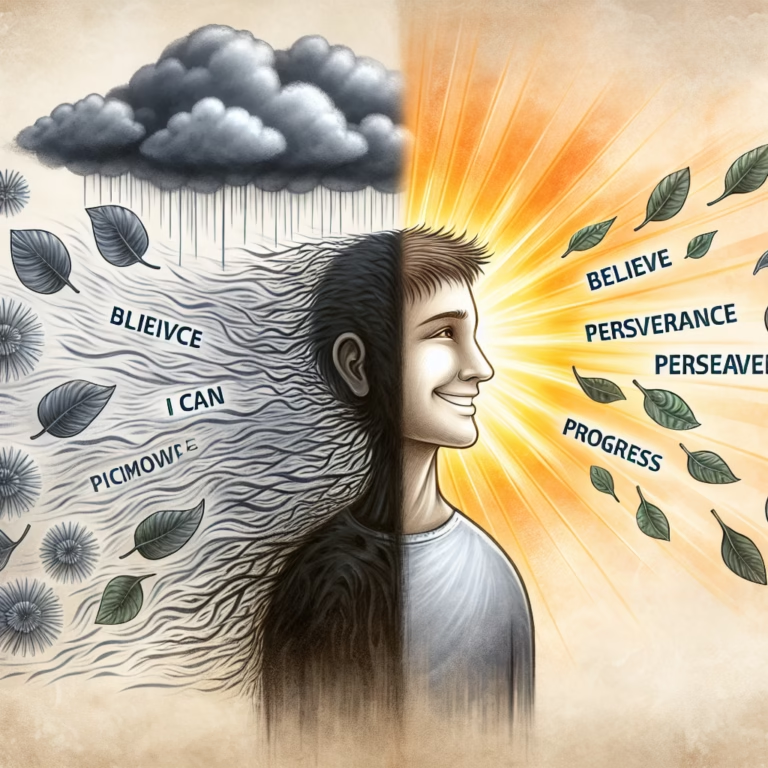

Resting Easy: Effective Strategies to Support Children with Sleep Issues and Mental Health Concerns
Sleep issues in children can create a ripple effect that impacts their overall well-being. Sleep is crucial for emotional regulation, cognitive functions, and physical health. When children do not rest well, they may experience heightened anxiety, irritability, and difficulties in concentration. Creating an environment conducive to sleep can address these concerns effectively. This article explores practical strategies to support children facing sleep challenges alongside mental health issues, ensuring they can rest easy and thrive.
Features of Effective Sleep Strategies
Effective sleep strategies for children with mental health concerns share certain features. These include:
- Consistency: A regular bedtime routine promotes a stable sleep schedule.
- Calm Environment: Creating a serene bedroom atmosphere helps children feel secure and relaxed.
- Limit Screen Time: Reducing technology use before sleep aids in falling asleep more easily.
- Relaxation Techniques: Methods like deep breathing or guided imagery can ease anxiety.
- Physical Activity: Encouraging daily exercise improves sleep quality and overall mood.
- Healthy Sleep Associations: Associating the bedroom strictly with sleep can condition the mind for rest.
- Comfortable Bedding: Quality mattresses and linens contribute to a restful night.
- Diet Considerations: Balancing meals throughout the day helps regulate sleep hormones.
- Mindfulness Practices: Teaching mindfulness can help children manage racing thoughts.
- Parental Involvement: Engaging in activities with your child fosters secure attachment and reassurance.
Overview of Sleep and Mental Health in Children
Sleep issues and mental health challenges are often intertwined. Sleep disturbances can exacerbate anxiety, depression, and attention disorders. Conversely, mental health problems can lead to sleepless nights. Understanding this relationship is critical. Improved sleep can lead to better emotional management and overall well-being. Awareness of your child’s mental state and its effect on sleep can facilitate timely interventions.
Understanding Why Sleep Matters
Quality sleep is vital for emotional resilience, cognitive function, and behavior regulation in children. Lack of restorative sleep leads to irritability, mood swings, and difficulty concentrating. Such effects can create a cycle where poor sleep aggravates existing mental health problems. Prioritizing sleep ensures children’s brains and bodies can properly recharge, enabling them to face their daily challenges with confidence and clarity.
Who Is Affected by Sleep Issues?
Sleep issues affect children of all ages, backgrounds, and circumstances. Factors contributing to sleep disturbances include:
- Age: Babies, toddlers, and school-aged children often have varying sleep needs.
- Life Changes: Transitions like starting school or family changes can disrupt routines.
- Mental Health Conditions: Anxiety, ADHD, and depression significantly impact sleep patterns.
- Environmental Factors: Noisy neighborhoods or chaotic homes can hinder restful sleep.
- Health Issues: Chronic conditions or allergies may contribute to sleep difficulties.
Who Will Benefit from These Strategies?
Parents, caregivers, educators, and mental health professionals can all benefit by applying these strategies. Implementing healthy sleep practices can support children in academic settings, improve their social interactions, and boost their overall mental health. Proactive approaches provide tools that empower families to navigate sleep challenges intentionally and compassionately.
What Is a Good Bedtime Routine?
A cohesive bedtime routine enhances a child’s ability to fall asleep. Elements to include are:
- Set a Regular Bedtime: Go to bed and wake up at the same time daily.
- Wind Down: Include calming activities like reading or puzzle-solving before bed.
- Avoid Stimulants: Caffeine and sugar in the evening can disrupt sleep patterns.
- Prepare the Environment: Dim lights and maintain a comfortable temperature in the bedroom.
- Limit Screen Time: Keep electronics away from bedtime to lessen stimulation.
Making these simple adjustments can significantly improve sleep quality over time, fostering better mental health for children.
When Is the Best Time for Bed?
Children thrive on a predictable sleep schedule, which means choosing a bedtime that accommodates their age-specific sleep requirements. Here are guidelines for optimal sleep times:
- Infants (4–12 months): 12–16 hours, including naps.
- Toddlers (1–2 years): 11–14 hours, including daytime naps.
- Preschoolers (3–5 years): 10–13 hours, and some may still nap.
- School-aged Children (6–13 years): 9–11 hours.
- Teenagers (14–17 years): 8–10 hours.
Notice how your child’s mood and focus change with different sleep durations. Adjusting bedtimes gradually can foster healthier habits.
How to Use Relaxation Techniques Before Bed
Engaging in relaxation techniques helps children settle down for the night. Ideas include:
- Breathing Exercises: Teach children to breathe deeply by counting in for four, holding for four, and exhaling for four.
- Progressive Muscle Relaxation: Instruct your child to tense and relax each muscle group.
- Guided Imagery: Encourage them to visualize calming places or happy memories.
- Gentle Yoga: Simple poses can release tension and prepare the body for rest.
- Listening to Soothing Music: Soft melodies can help create tranquility.
These techniques not only promote relaxation but also equip children with tools to manage anxiety in various settings.
Pros and Cons of Supporting Sleep and Mental Health
Understanding the advantages and possible drawbacks of these sleep strategies is paramount:
Pros:
- Enhances emotional regulation.
- Encourages better focus and learning.
- Fosters a secure and supportive home environment.
- Reduces behavioral issues caused by sleep deprivation.
Cons:
- Implementing changes can require time and consistency.
- Individual responses to strategies may vary.
- Some children may resist new routines initially.
Weighing these factors can help parents and caregivers create a sustainable approach to fostering better sleep.
Similar Products Supporting Sleep and Mental Health
Several resources can support children’s sleep and mental health. Popular options include:
- Sleep Aids: White noise machines can drown out disruptive sounds.
- Books on Mindfulness: Literature designed for children can teach relaxation techniques.
- Sleep Masks: These can create a darker environment conducive to sleep.
- Essential Oils: Lavender and chamomile can enhance relaxation when used safely.
- Weighted Blankets: They can provide comfort and security, improving sleep quality.
Exploring these products can add variety and further support healthy sleep habits.
Frequently Asked Questions
1. How can I tell if my child has a sleep issue?
Look for signs like difficulty falling asleep, frequent waking, irritability, or fatigue during the day.
2. What can I do if my child refuses to go to bed?
Consistency is key; establish a routine that includes calming activities and communication about the importance of sleep.
3. Is it okay for young children to nap during the day?
Daytime naps are essential for younger children but should be balanced with nighttime sleep.
4. How do I manage my child’s anxiety about bedtime?
Open communication can help. Encourage them to express feelings and include relaxation techniques in the bedtime routine.
5. What role does diet play in sleep?
A balanced diet supports sleep regulation. Avoid heavy meals close to bedtime and limit caffeine and sugary snacks.
Instantly Access Your FREE Children’s Books Here!
Disclaimer: As an Amazon Associate, I earn from qualifying purchases. I may earn a commission from qualifying purchases as an affiliate. Please note that I only recommend products I believe will provide value to my readers.







